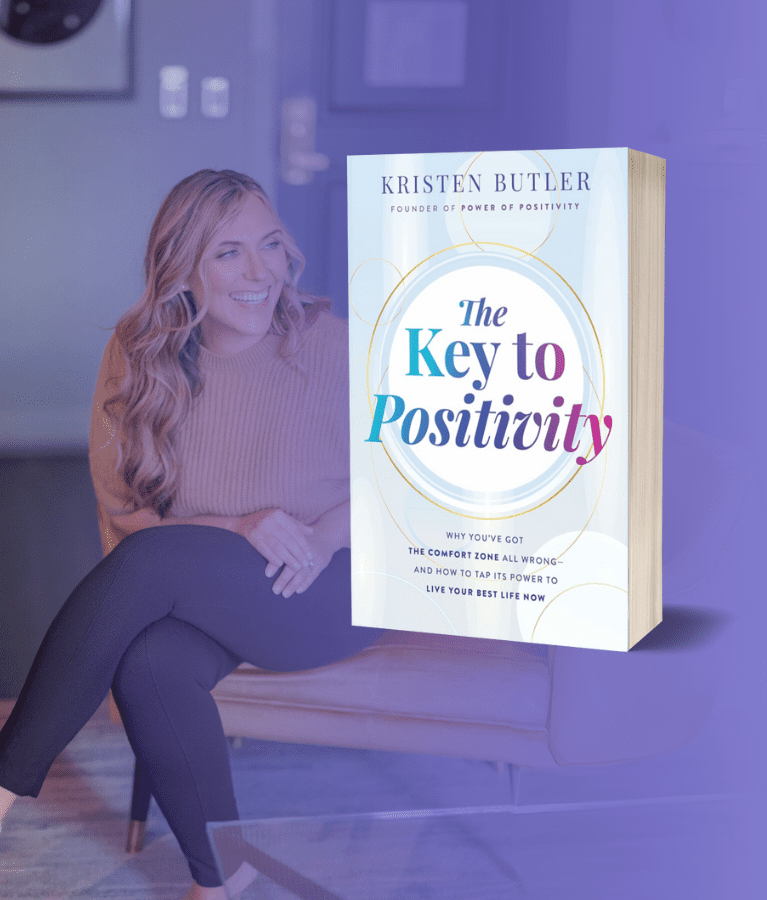Understanding how psychopathy and sociopathy differ.
Understanding the difference between a psychopath and a sociopath can be confusing, but it’s an important distinction to make. Both terms are often used interchangeably in everyday conversation and popular media, yet they refer to distinct personality disorders. By understanding these differences, you can better understand these complex conditions and how they might affect individuals and society.
Whether you encounter these terms in crime dramas, news reports, or even in personal relationships, knowing what sets psychopaths apart from sociopaths can help demystify their behaviors. This knowledge can also be valuable in promoting mental health awareness and empathy, especially towards those who might be affected by these disorders.
Understanding Psychopathy
Psychopathy is a personality disorder best known for a persistent pattern of behavior that disregards the rights and feelings of others. People with this condition often display a lack of empathy, shallow emotions, and an inflated sense of self-worth. They may be charming and manipulative, using their social skills to deceive others for personal gain.

Key Characteristics of Psychopaths
Psychopaths typically exhibit a range of traits that set them apart from the general population. These include superficial charm, a grandiose sense of self-importance, and a lack of remorse or guilt. They are often highly manipulative, skilled at lying, and may engage in risky or impulsive behaviors without considering the consequences. Their relationships are usually superficial and exploitative, as they view others as tools to achieve their own goals.
Behavioral Patterns and Traits
A consistent disregard marks the behavioral patterns of psychopaths for social norms and the law. They may engage in criminal activities or antisocial behavior without feeling guilty or fearing punishment. Psychopaths are also known for their ability to mimic emotions they don’t feel, which allows them to blend in and exploit others more effectively. This ability to feign empathy and understanding makes them particularly dangerous in social settings.
Examples in Popular Culture
In popular culture, psychopaths are often depicted as cold, calculating villains. Characters like Hannibal Lecter from “Silence of the Lambs” or Patrick Bateman from “American Psycho” embody many of the traits associated with psychopathy. While these portrayals are dramatized for entertainment, they do capture some of the core characteristics of psychopathy, such as a lack of empathy and a propensity for manipulation and violence.
Understanding Sociopathy: Definition of Sociopathy
Sociopathy, also known as antisocial personality disorder, is a condition characterized by a long-term pattern of manipulating, exploiting, or violating the rights of others. Unlike psychopathy, sociopathy is often seen as more influenced by environmental factors, such as childhood trauma or adverse experiences. People with sociopathy tend to be more erratic and prone to emotional outbursts compared to psychopaths.
Key Characteristics of Sociopaths
Sociopaths share some traits with psychopaths, such as a disregard for the law and the rights of others. However, they are generally less organized in their behavior and more prone to impulsivity. They might struggle to maintain long-term relationships and often act without considering the long-term consequences. Their actions are typically more influenced by their immediate surroundings and emotions, making them unpredictable.
Behavioral Patterns and Traits
The behavior of sociopaths is often erratic and impulsive. They might have a history of unstable relationships and a tendency to engage in spontaneous, sometimes violent, actions. Unlike psychopaths, who are calculated and meticulous, sociopaths can be more reactive and less able to control their impulses. They may also exhibit emotional outbursts and have difficulty holding a job or maintaining a stable lifestyle.
Examples in Popular Culture
In popular culture, sociopaths are often portrayed as volatile and unpredictable. Characters like the Joker from the “Batman” series or Tommy DeVito from “Goodfellas” exemplify sociopathic traits. These characters are driven by chaotic emotions and a disregard for social norms, highlighting the erratic nature of sociopathy.
What Are the Key Differences Between Psychopaths and Sociopaths?

Emotional and Behavioral Differences
One of the main differences between psychopaths and sociopaths lies in their emotional and behavioral patterns.
Psychopaths are typically more cold and calculated, with a high degree of control over their emotions. They can appear charming and routine, making it easier for them to manipulate others.
Sociopaths, on the other hand, are more likely to be erratic and unable to control their impulses. Their emotional instability often leads to more visible and disruptive behaviors.
Differences in Brain Structure and Function
There are distinct differences in the brain structures of psychopaths and sociopaths.
Psychopaths often have abnormalities in the areas of the brain associated with emotion regulation and impulse control, such as the amygdala and prefrontal cortex. These differences can explain their lack of empathy and ability to remain calm in situations where others experience fear or anxiety.
Sociopaths, while also showing some brain differences, are believed to be more influenced by their environment and upbringing rather than inherent brain structure abnormalities.
Impact on Social Relationships and Interactions
The impact of these disorders on social relationships is significant. Psychopaths tend to have more superficial relationships, as they view others as tools for their gain. Their manipulative nature makes it difficult for them to form genuine connections. Sociopaths, while also struggling with relationships, tend to have more tumultuous interactions due to their impulsive and erratic behavior. They might form attachments but are prone to sudden, intense conflicts and challenging long-term relationships.
Causes and Development
Genetic Factors
Both psychopathy and sociopathy have roots in genetic factors, though their influences can differ.
Studies suggest that psychopathy could be more strongly linked to genetics. Individuals with a family history of psychopathy are likelier to exhibit similar traits. This genetic predisposition affects brain development and function, particularly in emotion regulation and impulse control. While not everyone with these genes will develop psychopathy, the risk is significantly higher.
Environmental Influences
Environmental factors play a part in developing sociopathy. Traumatic experiences during childhood, including abuse, neglect, or exposure to violence, can contribute to the emergence of sociopathic traits. These adverse conditions can disrupt normal emotional and social development, leading to difficulties forming healthy relationships and regulating emotions. Unlike psychopathy, where genetic factors are more prominent, sociopathy is often seen as a response to a harsh or unstable environment.
Developmental Differences
The development of psychopathy and sociopathy can also differ in terms of timing and progression. Psychopathic traits often become evident in early childhood and persist into adulthood. These individuals may exhibit conduct disorders, such as aggression towards peers or animals, deceitfulness, and a disregard for rules. In contrast, sociopathic traits might develop later, often in response to environmental stressors. These individuals might have had relatively normal early childhoods but develop antisocial behaviors as a reaction to adverse experiences during their formative years.
Diagnosis and Treatment of Psychopathy or Sociopathy
Diagnosing psychopathy and sociopathy involves comprehensive psychological evaluations. Psychologists and psychiatrists use standardized assessments and diagnostic criteria according to the Diagnostic and Statistical Manual of Mental Disorders (DSM-5) to identify these disorders. For psychopathy, tools like the Hare Psychopathy Checklist-Revised (PCL-R) are commonly used. This checklist assesses superficial charm, lack of empathy, and impulsivity. Sociopathy, or antisocial personality disorder, is diagnosed based on a persistent pattern of disregarding the rights of others, deceitfulness, and impulsivity, among other criteria.
Treatment Options Available
Treating psychopathy and sociopathy presents significant challenges.
Psychopathy, due to its vital genetic component and inherent brain structure differences, is particularly resistant to treatment. Traditional psychotherapy approaches often have limited effectiveness. However, some interventions, such as cognitive-behavioral therapy (CBT), may help individuals learn to manage specific behaviors.
Sociopathy, with stronger ties to environmental factors, might respond better to therapeutic interventions. Therapy for sociopaths often focuses on developing empathy, improving emotional regulation, and addressing the underlying trauma that contributed to the disorder.
Challenges in Treatment for the Psychopath or Sociopath
One of the main challenges in treating both psychopathy and sociopathy is the lack of motivation for change. Individuals with these disorders often do not see their behavior as problematic, making them less likely to seek or engage in treatment. Additionally, their manipulative and deceitful nature can make therapeutic relationships challenging to establish and maintain.
For these reasons, treatment often focuses on managing behaviors rather than curing the disorder.
Living with or Knowing a Psychopath or Sociopath
Interacting with a psychopath or sociopath can be challenging and emotionally draining. It’s essential to set clear boundaries and protect yourself from manipulation. Be cautious about sharing personal information, as these individuals might use it to exploit you. When dealing with a psychopath, remember that they can be very charming and convincing. Stay vigilant – trust your gut if something feels off. With sociopaths, be prepared for erratic behavior and emotional outbursts. A calm, composed demeanor can help manage interactions more effectively.
Safety Tips and Coping Strategies
Safety should always be a priority when dealing with a psychopath or sociopath. If you feel threatened, don’t hesitate to seek help from law enforcement or mental health professionals. Develop a support system of trusted friends and family who can offer advice and assistance. In your interactions, stay factual and avoid emotional arguments, as these can escalate the situation. It’s also helpful to educate yourself about these disorders to understand better what you’re dealing with. Knowledge can help you to make informed decisions and protect your well-being.
Importance of Professional Support
Professional support is crucial when dealing with the complexities of psychopathy and sociopathy. Therapists and counselors can provide strategies for managing interactions and maintaining your mental health. If you are in a relationship with someone who exhibits these traits, couples therapy might help, though it’s often challenging. For those who have been victims of manipulation or abuse by a psychopath or sociopath, trauma therapy can be beneficial.
Final Thoughts on the Key Differences Between the Psychopath and the Sociopath
Understanding the differences between a psychopath and a sociopath is vital for navigating interactions with individuals who have these disorders. Both disorders pose significant challenges for diagnosis and treatment, often requiring professional intervention. If you see these traits in yourself or someone you care about, seeking professional support is a key to a better balance in life.



















